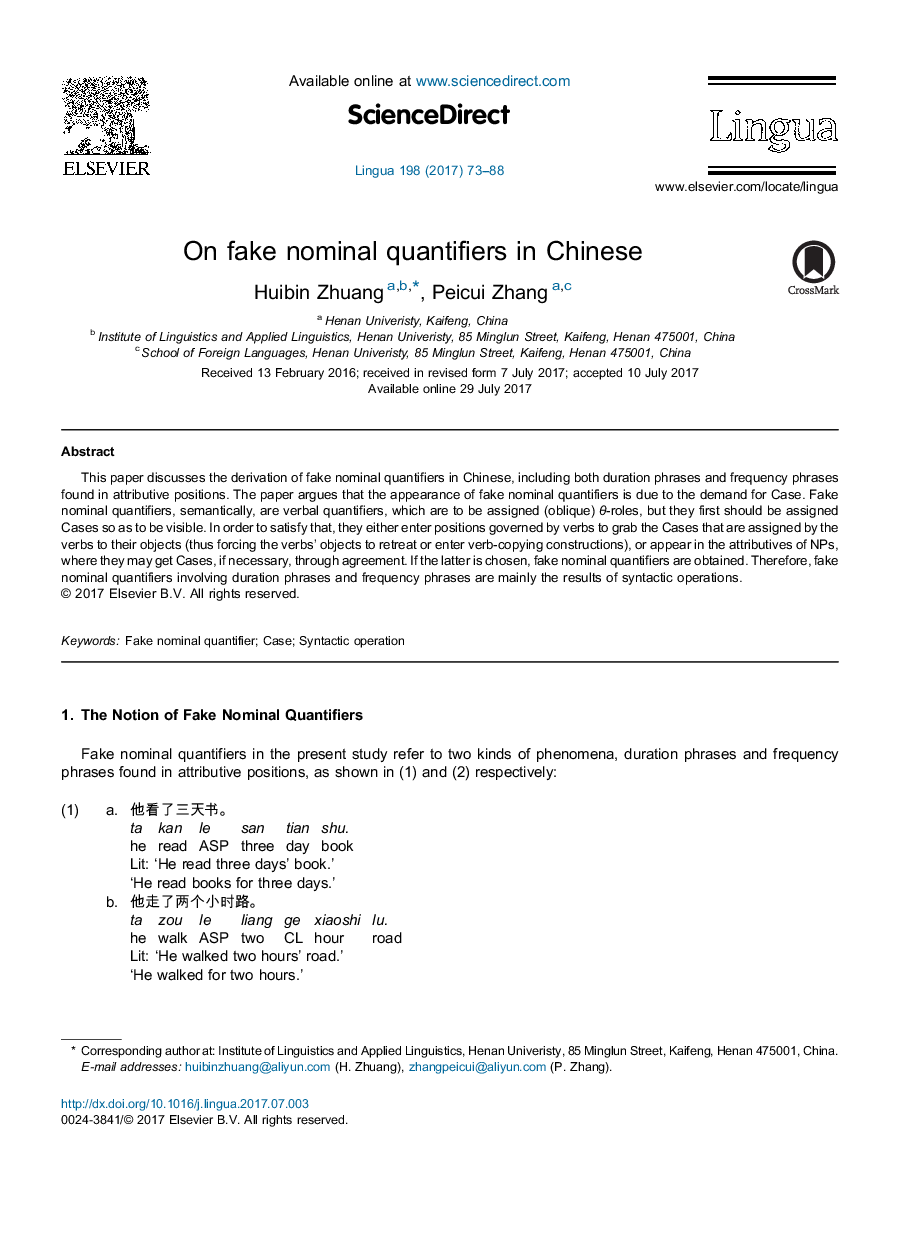| Article ID | Journal | Published Year | Pages | File Type |
|---|---|---|---|---|
| 5042957 | Lingua | 2017 | 16 Pages |
â¢Fake nominal quantifiers are mainly the results of syntactic operations.â¢The appearance of fake nominal quantifiers is due to the demand for Case.â¢With Cases, fake nominal quantifiers are to be assigned (oblique) θ-roles.â¢In order to get Cases, they can be governed by verbs or become attributives of NPs.
This paper discusses the derivation of fake nominal quantifiers in Chinese, including both duration phrases and frequency phrases found in attributive positions. The paper argues that the appearance of fake nominal quantifiers is due to the demand for Case. Fake nominal quantifiers, semantically, are verbal quantifiers, which are to be assigned (oblique) θ-roles, but they first should be assigned Cases so as to be visible. In order to satisfy that, they either enter positions governed by verbs to grab the Cases that are assigned by the verbs to their objects (thus forcing the verbs' objects to retreat or enter verb-copying constructions), or appear in the attributives of NPs, where they may get Cases, if necessary, through agreement. If the latter is chosen, fake nominal quantifiers are obtained. Therefore, fake nominal quantifiers involving duration phrases and frequency phrases are mainly the results of syntactic operations.
